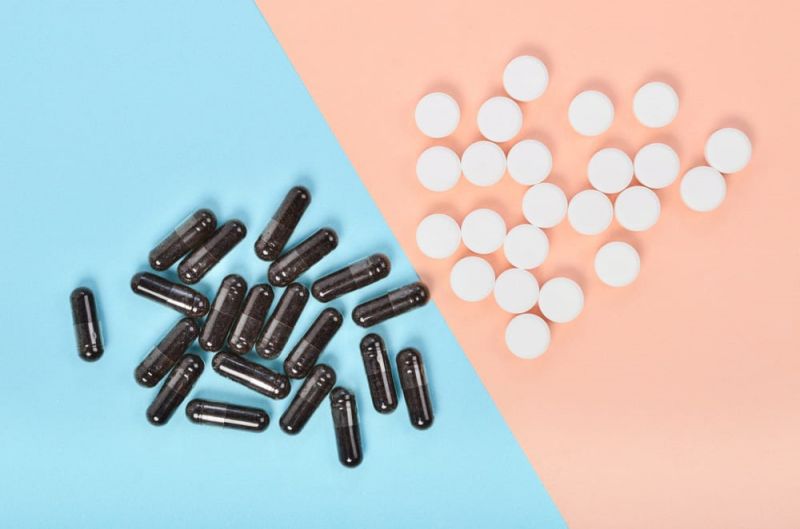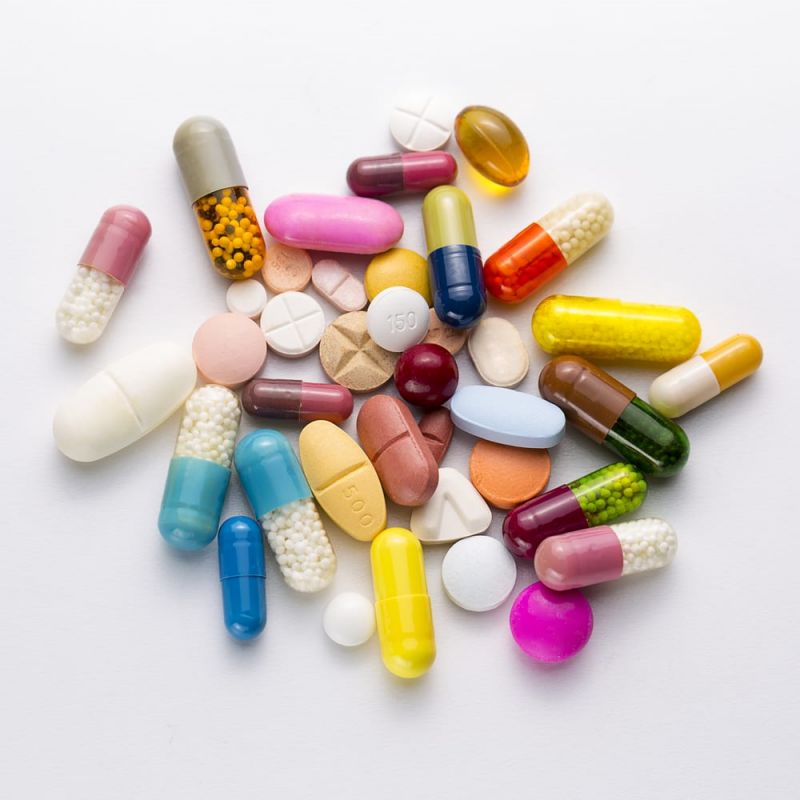Introduction
Medicine in terms of capsule and pills possess unique characteristics as well as specifications. Pills have hard coatings. However, capsules have the other end as a polymeric shell. Medicines should be very much understood, since they are taken in different ways and move about in the body in order to cure illnesses. Selection of capsules and pills will be greatly influenced by factors like bioavailability, absorption rate, and general effectiveness. This underscores the relevance of right choices.

What are Pills and Capsules?
Pills:
Oral medication commonly exists as pills, alternatively referred to as tablets. Active pharmaceutical ingredients (APIs), in combination with diverse excipients, usually form a solid and compressed structure - often coated for primary purposes: facilitating ease of swallowing; masking the taste of the medication. Various shapes and sizes characterize pills, their intended divisibility into smaller doses determines whether they bear scoring or not.
Capsules:
A shell encapsulates a medicine; this outer layer subsequently disintegrates within the digestive system. Consequently, like a pill, it undergoes absorption into the bloodstream and further decomposition occurs.
Two main types exist: hard-shell capsules and soft gel capsules. The hard-shelled capsule comprises two fitting parts that form a closed shell; it contains either dry or wet medicine. Usually larger and featuring partially clear interior, soft-gel capsules encapsulate medicine in liquid gel form.

What is the Difference between Pills and Capsules?
Pills usually take more time to dissolve than capsules due to their solid and compact form.
Pills have delayed action due to slower absorption rate as compared to capsules.
Capsules are more likely to be of higher cost as compared to pills.
Gel-coated capsules are generally easy to swallow as compared to pills.
Which is Stronger-Capsules or Pills?
The rate of capsule disintegration generally exceeds that of the pills separately. The gelatinous polymeric shell capsules disintegrate easily, making the drug easier to absorb. This rapid dispersion may contribute to faster onset of action and increased bioavailability compared to pills. As the pill solidifies, it generally decomposes more slowly, making it more likely to leach.
Pharmaceutical companies including Yasin Gelatin, play an important role in ensuring the stability of medicine. Strict quality control procedures are followed during manufacture to safeguard the integrity of capsules and its derivatives. This includes the use of high quality materials, factory supervised implementation and testing. Capsule factories are also investing in research and development to improve capsule manufacturing for improved stability. By prioritizing these factors, pharmaceutical companies play a critical role in ensuring drug efficacy from development to patient use. Their commitment to its consistency is consistent with the broader goal of providing reliable and potent medicines to healthcare professionals and patients.
Which is better According to Consumer Preference?
Some consumers prefer capsules due to its smooth and gel-coated outer shell which makes it easier to swallow. Other consumers may find it easy to swallow pills due to its small size. Drugs or medications with strong unpleasant odor are preferred to take in capsule form because capsules mask these effects. Consumers that are looking for quick onset opt for capsule than those that are comfortable with slower onset.
Consumer preferences between capsules and pills vary and are influenced by a variety of factors such as personal comfort, emotional considerations, and product quality. Understanding these factors is important for healthcare providers to ensure that patients follow up and be satisfied with the prescribed treatment.

What is the link between Empty Capsule Suppliers and Quality Assurance?
In the process of making capsules, quality is important. Suppliers prefer safety and cleanliness at the top of their list in making empty capsules. They choose ingredients carefully and use strict methods to get rid of any contamination. They also keep their chemical standards high which supports the capsule companies' commitment to manufacturing in several ways. They follow key elements for quality control and effective building standards such as strict testing, constant change, and adaptation. Direct effect of efficiency on measuring the dose, accuracy stability, and residual stability to make sure dosing is accurate and efficient is very important. This shows that the work has no limits, it should follow all standards.
Conclusion
The discussion above concludes that a comparative analysis of the drugs’ formulation shows distinct delivery methods for capsules and tablets. Pills and capsules are also very significant in drug production, providing manufacturers with diverse opportunities while serving different groups of buyers. This means that they are easily absorbed and suitable for fast acting substances such as drugs that require fast absorption. However, another popular and stable drug at affordable price remains an available option reliable in treatment of clients from consumer society. The consumers prefer these two options due to considerations such as easy swallowing of these pills, type of medication, as well as the patient’s level of familiarity with their physicians. They represent key elements that support quality, safety and stability of a drug, and through stringency in testing, strict compliance with standards and continuous improvement, it should be understood that they have a sure confidence in competently formulated capsules supplied for empty capsules suppliers and capsule factories.
The importance of looking into capsule technology developments cannot be overstated, as it tells us loud and clear that the future holds for innovative solutions and sustainable practices. This underlines that for healthcare providers to give patients with appropriate medicine, their service is based upon commitment to patient health and pride in drugs. Efficacy and safety can be realized since patients and healthcare professionals are fostering a surrounding which sees the integration of pharmaceutical outcomes with efficacy, safety, and patient preference.
Post time: Dec-27-2023






